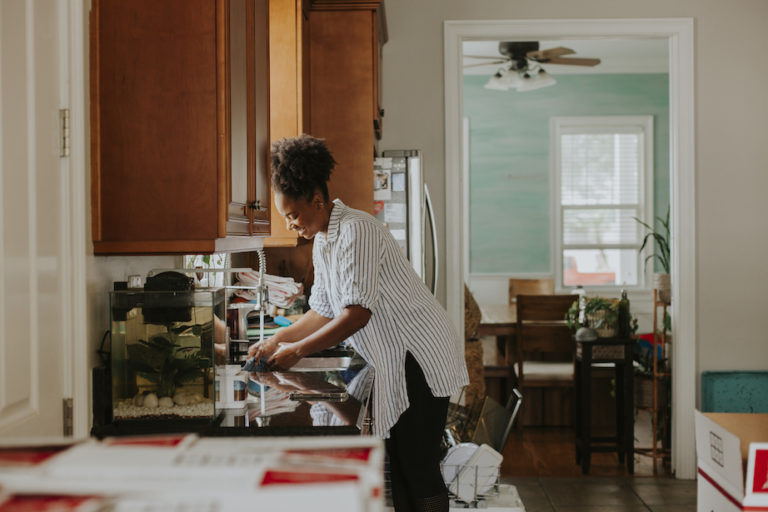Has your offer been accepted? Congratulations! Your next big to-do is a professional home inspection. What’s this critical step in the homebuying process all about?
Here are answers to 10 of the biggest, most common questions homebuyers ask. Including what happens if the inspection turns up something you’re praying it won’t.
Let’s jump right in.
1. Why is a home inspection so important?
An independent home inspection protects you. How? By giving you a clear, comprehensive, and objective picture of the condition of your home-to-be before you make a final decision. It could even help you avoid buying the wrong home. You can’t return this purchase!
Are there any structural problems? How long until the roof needs replacing? Any signs of water damage? Faulty wiring? A home inspection is a fact-finding mission that can reveal potentially costly issues, including safety hazards. The few hundred dollars you would save by skipping it isn’t worth the risk.
Even new construction should be inspected. Building a home is a complex undertaking, and mistakes happen. You want to know about them before you buy.
2. Is a home inspection required?
No. Although a comprehensive home inspection is very, very important to you as a buyer, technically, it’s not required, by your lender or anyone else.
First-time buyers sometimes get the inspection mixed up with the appraisal, which your mortgage lender will require.
An appraisal is an independent, professional determination of the current market value of the home, based on recent sales in the area and other factors. For their own protection, lenders want to be sure that the property is worth what you’ve agreed to pay for it.
3. Can I do the home inspection myself?
No. Very few homebuyers have anywhere near the expertise needed to pick up on all the issues that can be lurking in a building. Even someone who works in the construction industry might not have the broad base of knowledge needed to do a comprehensive inspection.
However, we encourage you to do your own “inspection” before making an offer. If possible, that is — it might not be if homes are moving fast. Schedule at least an hour for a second look at the property, when the seller isn’t there. Bring a flashlight and a notepad. The closer look could affect your decision on how much to offer.
4. What does a home inspection cover?
A lot. But not everything. There are two opposite misconceptions about home inspection. One is that it merely verifies that the property complies with local building codes. The other is that it’s going to cover everything. The truth is in between.
“Code is the minimum standard,” says Frank Lesh of the American Society of Home Inspectors. “So code is like getting a D in school.” In fact, he says, the typical home inspector’s checklist has more than 200 items.
Home inspectors do a visual check of the structural components, the foundation, the roof, siding, all plumbing fixtures and drains, heating and central AC equipment, insulation, ventilation, and a representative number of windows, doors, outlets, and lights. They look hard for moisture problems — unless you live in the desert, moisture is a home’s number-one enemy. They note anything that needs repair or replacement, now or in the near future.
What doesn’t a home inspection cover? Your contract with your inspector will outline the limits of the inspection. Home inspectors aren’t required to move anything, take anything apart, or climb into crawlspaces. Remember that they’re a guest in the seller’s home. Plus, home inspectors are generalists, and no single inspector is trained to assess everything.
A number of specific hazards and home features usually require a specialist if you want a formal assessment. Inspections for radon, lead, and pests are some of the most common specialized ones. Some generalists do have more training and offer certain extras for an additional charge.
5. Who pays for a home inspection?
You, the buyer. The inspector is your private consultant and advocate.
And how much does a home inspection cost? The typical inspection takes maybe two to four hours and costs $250 to $500, but it can go higher if the house is really big or has a lot of problems. You’ll pay more in some regions of the country than others. New England tends to be more expensive than the South, for example.
6. Who attends the home inspection?
You, the inspector, and your agent. That’s typical, anyway. You don’t want to bring along too many people, because you need to focus on what the inspector tells you. It’s best to have the sellers out of the picture, and most agree to step out for a few hours. But it’s still their house, so you can’t make them.
Just to be clear, you’re not required to attend your home inspection, but we very strongly recommend it. You’ll learn a lot about the home, and you’ll be able to ask questions in person. At the very least, meet with your inspector at the house afterward to go over the findings.
7. What happens when an inspection uncovers a problem?
You can accept it, negotiate a lower price, or walk away. A home never “fails” a home inspection, per se. It’s a question of what you want to do with the information. After all, anything can be fixed — for a price.
Your home inspection could turn up any number of minor things that are good to know about, but not worth making an issue out of. A leaky faucet. A cracked window. But then there’s things that could cost thousands to fix. Maybe the roof is in worse condition than you thought. What then? You can ask the seller to fix the problem as a condition of the sale, or you can negotiate a lower price. You and your agent might have to call in a contractor for an estimate.
Negotiating this stuff can be tricky. You don’t want to overpay, but if you really want the house, you don’t want to put off the seller. Your agent will help you with the balancing act.
Really big problems can be deal breakers. Structural issues, for example. It’s sometimes difficult to assess the extent of structural damage, says Lesh, so you can’t know for sure what you’re getting into.
Purchase agreements almost always have a clause that makes the sale contingent on an inspection that doesn’t turn up anything major. You have the right to walk away (and take your deposit with you) if you’re faced with more than you want to deal with.
8. What if my inspector misses something big?
It depends on the contract. Some home inspection contracts have a clause that limits the inspector’s liability to the cost of the inspection. But most do carry what’s called errors and omissions insurance, says Lesh. It’s mandatory in some states. Some inspectors self-insure.
According to Lesh, it’s pretty rare for a reputable inspector to miss something big that was catchable. “Misses” tend to involve things that a visual inspection can’t pick up on. For example, water damage that’s hidden by paneling.
If something like that crops up after you close on the home, do contact your inspector to get their thoughts on just how serious it is, says Lesh. “If you call a contractor, remember, a contractor has an incentive to find a problem, because he’s going to make money fixing it. I don’t.”
Your best protection from genuine inspection misses is your own due diligence: hire a skilled, reputable home inspector (see number 10).
9. Can home inspectors do repairs?
No. Some inspectors estimate repair costs in their report, which is a nice FYI for you, but they shouldn’t volunteer to make any repairs or improvements. That’s not their job and would be considered a conflict of interest.
10. How do I find a good home inspector?
First, look for certification. Be aware that not all states require home inspectors to be licensed. In those states, practically anybody can set up shop as an inspector. The quick solution for homebuyers is to look for certification by one of the two professional organizations that inspectors can voluntarily join, ASHI and InterNACHI. Here are their lookup pages:
- American Society of Home Inspectors (ASHI)
- International Association of Certified Home Inspectors (InterNACHI)




